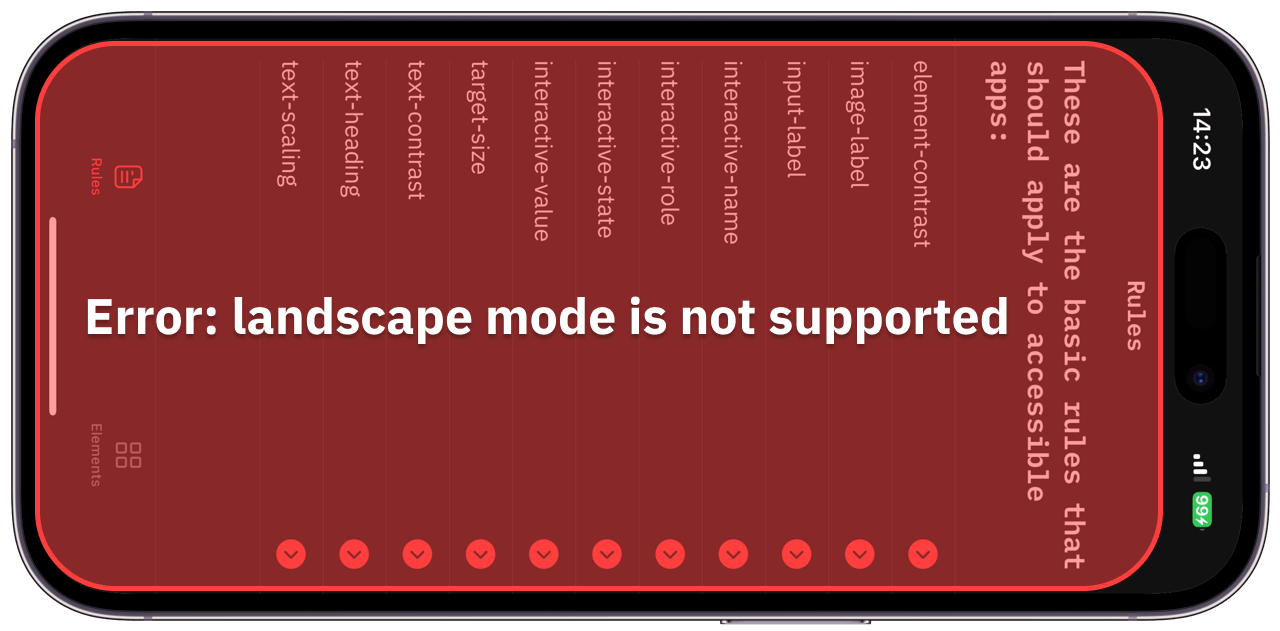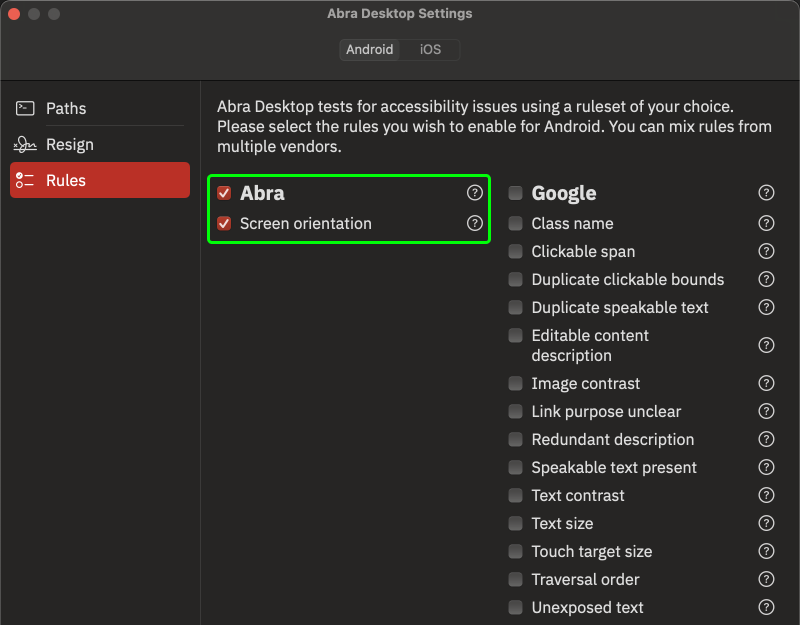Automatically test the accessibility of apps using Abra rules
We are proud to announce that Abra rules are now available in all our products!
Rules describe how to test a particular aspect of accessibility. Each rule has specific testing steps.
We have defined Abra rules to test the accessibility of apps across Android and iOS. In addition, you can also use rules defined by Apple (only iOS) and Google (only Android).
Screen orientation rule
The first rule that we are releasing is the Screen orientation rule. The rule relates to Success Criterion 1.3.4 Orientation. It checks if landscape and portrait orientation are both available in your app.
Did you know that there are not just two, but four orientations?
Portrait: Portrait orientation (the display is taller than it is wide).
Portrait (reversed): Portrait orientation in the opposite direction.
Landscape: Landscape orientation (the display is wider than it is tall).
Landscape (reversed): Landscape orientation in the opposite direction.
Our rule automatically checks if at least one version of portrait mode and one version of landscape mode is supported.
 Many apps are restricted to only one orientation, mostly portrait mode. Restricting orientation can be problematic, especially for users with fixed devices, like those mounted on wheelchairs. Additionally, visually impaired users benefit from landscape mode, as it allows more characters to fit on the screen when text is enlarged.
Many apps are restricted to only one orientation, mostly portrait mode. Restricting orientation can be problematic, especially for users with fixed devices, like those mounted on wheelchairs. Additionally, visually impaired users benefit from landscape mode, as it allows more characters to fit on the screen when text is enlarged.
Starting from Android 16, the orientation restriction can no longer be used. There has never been a better moment to ensure your apps are available in multiple orientations.
The screen orientation rule is available for Android and iOS in Abra Desktop, Abra SDK and Abra Cloud.
 Upcoming Abra rules
Upcoming Abra rules
Over the last few months we have been working on the architecture and testing procedures for Abra rules.
Following the successful validation of our implementation, we are ready to introduce new Abra rules on a regular basis.
Further reading
-
Introducing new Abra Academy learning videos
Two years ago, we launched the Abra Kick-off training, and the response was incredible! Today, we're excited to take the next step by launching more app accessibility courses. Read more »
-
Announcing Abra software version 2.0.0
We're thrilled to announce the biggest update to our products yet! Available starting April 1, 2025 and no, this is not an April Fool's joke! 😉 Read more »
-
Automated Abra rules to detect target size have been released
We’ve added two new automated Abra rules to Abra Desktop: Read more »